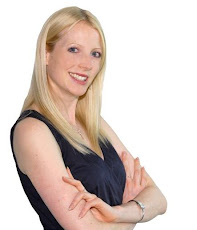 Forget the glass ceiling – the real gender problem for Britain’s boardrooms is a lack of women ready to take on the role of director, according to Kathleen O’Donovan, one of the country’s most senior non-executives.
Forget the glass ceiling – the real gender problem for Britain’s boardrooms is a lack of women ready to take on the role of director, according to Kathleen O’Donovan, one of the country’s most senior non-executives. Research by a company co-founded by Ms O’Donovan, who became the FTSE 100’s first female finance director at BTR in 1991, has found that businesses want to appoint women to their boards but cannot find enough experienced female candidates. “Time and again, we were told there are too few women in the pipeline – too few rising up career paths, too few gaining experience in running things, too few in the top executive roles,” says the report by Bird & Co Board and Executive Mentoring.
It interviewed 36 directors of FTSE companies, public sector and not-for-profit organisations, two-thirds of them women. This comes after Helen Alexander, president-nominee of the CBI employers’ group, told the Financial Times last week that boards composed entirely of white males indulged in narrow ‘groupthink’ and were missing out on talent.
Ms O’Donovan is deputy chairwoman of Great Portland Estates and non-executive director at Prudential, Trinity Mirror and ARM Holding and with Isabel Bird, co-founded Bird & Co Executive Board Mentoring 18 months ago. It aims to coach, mentor and train 24 female executives in the coming months – and 100 over four years – to try to make them ‘board-ready’. Typically they will be divisional heads or on executive committees at FTSE 100 groups and would go on to gain their first non-executive directorship at a smaller quoted company. As well as Ms O’Donovan, the mentors will include Alison Carnwath, Land Securities’ new chairman, and Val Gooding, former chief executive of Bupa, who is on the board of J Sainsbury and Standard Chartered Bank.
The training will cover “corporate theatre” or boardroom dynamics, how to get your voice heard on a board, corporate governance and financial matters and how to get a non-executive role.
She said women often progressed faster in professional firms, non-quoted companies and public sector organizations.
The training will cover “corporate theatre” or boardroom dynamics, how to get your voice heard on a board, corporate governance and financial matters and how to get a non-executive role.
She said women often progressed faster in professional firms, non-quoted companies and public sector organizations.
Women still occupy less than 12 per cent of directorships in FTSE 100 groups.
APA





No comments:
Post a Comment